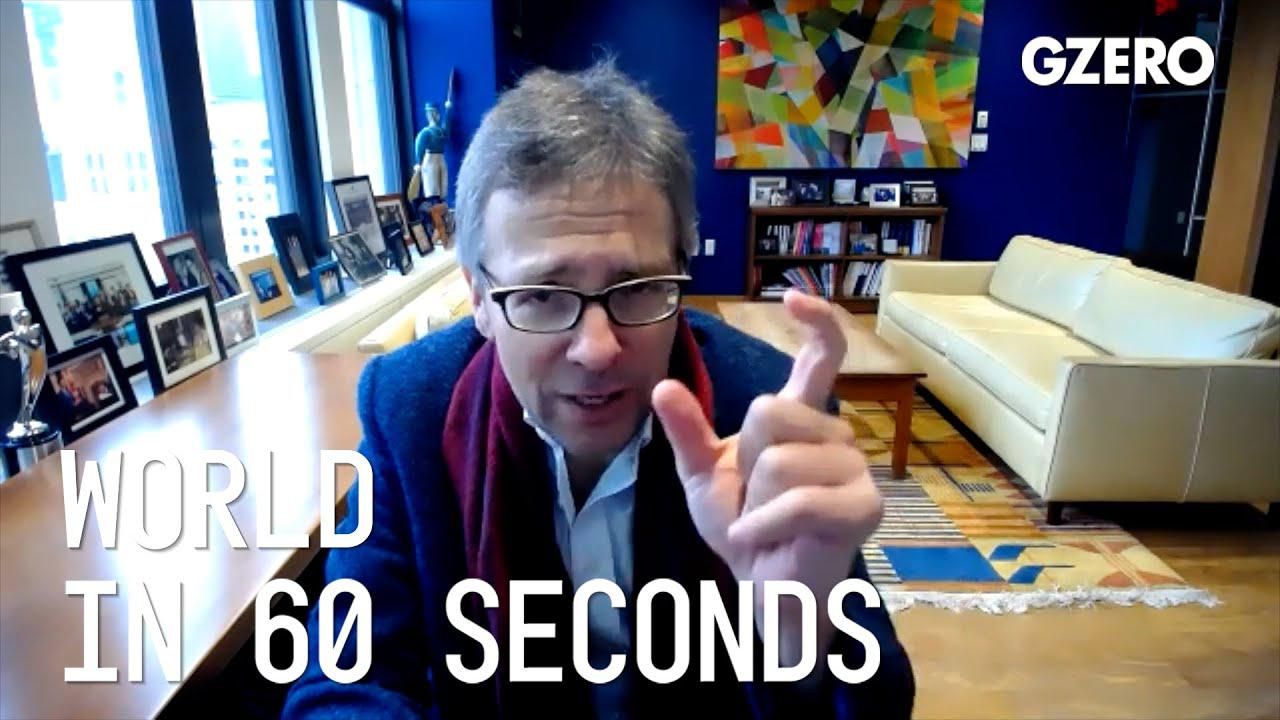
Ian Bremmer shares his perspective on the latest news in global politics on World In :60 - that is, :180.
First. What is going on with the AstraZeneca vaccine?
Well, around Europe, we have all of these countries that have suspended giving out AstraZeneca vaccines, because there have been some side effects of people that are taking it. Blood clots, a tiny number of folks, actually fewer side effects for AstraZeneca than we've seen for Pfizer, but it's become this big political show. After a few countries start shutting it down, others do because they can't be left by themselves. I just talked to a major senior official from one country saying, "Yeah, we were under pressure. We want to keep it going." World Health Organization said it's fine. AstraZeneca itself who has done the trials, say it's fine. And this is slowing down an already very slow vaccine rollout in Europe. They were doing a lot of things reasonably well in terms of dealing with the pandemic, but absolutely not this. They're a couple of months behind the United States right now in terms of getting to herd immunity. This is going to slow them down. It's going to hurt their economic growth this year. Okay.
Why are people protesting in Britain?
Well, big demonstrations opposed to the killing of a woman by serving member of the police force. Now there is proposed legislation that would limit demonstrations in the country. The demonstrations have been responded to with fairly aggressive policing, especially in the case of the UK, where police forces not carrying lethal force, the historic idea of the bobbies who are very well behaved and very little violence as a consequence in the UK. Knives are a big problem, but not gun violence. Well, it turns out that this is becoming a much more challenging, and as a consequence, the UK is trying to respond. There were certainly a lot of women that were protesting, were seen pushed down to the ground by police, serving on the same force as the fellow that had killed this woman. It's a challenge in the UK and Boris Johnson who had been doing well the last couple of weeks, has another thing that he's got to deal with.
Okay. And then finally, did you read Jared Kushner's op-ed on the middle East? What is the Biden administration's approach to the region compared to his predecessor?
Yeah, I thought it was a pretty good piece actually. First of all, basically came out and said that he thinks that what Biden is doing in China first and foremost, and in the Middle East, largely speaking, the right thing. They basically agree. Where they disagree is on the Iran deal. Kushner saying it was right of Biden to bring up the JCPOA and then back off, because the Iranians aren't serious. I think the Iranians are serious, but they're posturing because they can't be seen domestically before their own election in just accepting the old JCPOA deal. But I think that by the beginning of next year, that is what they will accept. Kushner doesn't think that's a good idea. He thinks that the US should not accept anything unless it's a broader, tougher deal that includes ballistic missile limitations, includes limiting of funding, for example, for proxies in the region and extremist groups. I think that may be possible over the medium to long-term, but in the near-term, I think both sides will end up accepting almost exactly the old JCPOA, maybe with an extended timeline around it. That means the Iranians will stop with their expanded nuclear capability development and they'll also have about a million more barrels a day of oil being produced, which means prices will go down.